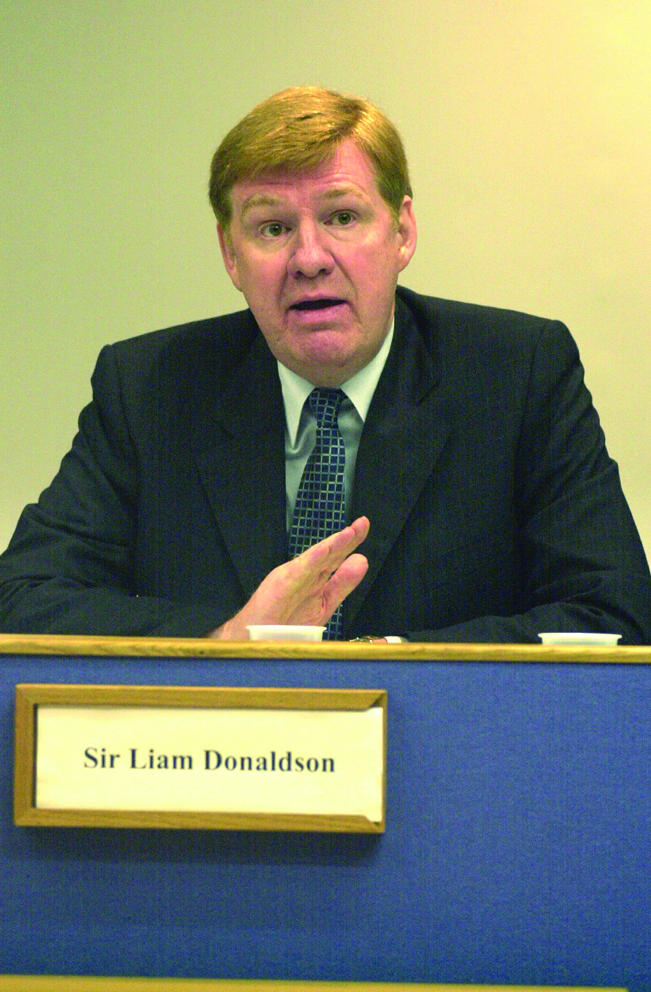Doctors and managers in the NHS will be placed under a statutory “duty of candour” requiring them to tell patients when a negligent act or omission causes harm, under plans for sweeping reform of the clinical negligence system unveiled this week.
Figure 1.

Professor Liam Donaldson's report calls for candour
Credit: MARK THOMAS
A new NHS “redress scheme” will offer a compensation package of remedial care, apologies, and compensation up to £30 000 ($49 670; €43 170) without the need for litigation, and no-fault compensation for babies with severe birth related neurological damage. The redress scheme, to be administered by a new body based on the NHS Litigation Authority, is the key plank of Making Amends, the long awaited report from the chief medical officer, Professor Liam Donaldson. The consultation paper makes 19 recommendations but rejects the full no-fault compensation scheme that many doctors wanted. Doctors at the BMA's annual representative meeting in Torquay this week overwhelmingly passed a motion supporting a full system of no fault compensation for clinical errors, with maximum financial limits.
Patients covered by the proposed new redress scheme will have the option of litigation instead if they choose, but they will waive their right to litigate if they accept compensation under the scheme. The redress scheme will be closely aligned to the new NHS complaints procedure, and making a claim for compensation will no longer be a disqualification for pursuing a complaint. Compensation under the scheme, which would initially cover the hospital sector but could be extended to primary care, will be paid for “serious shortcomings in NHS care if the harm could have been avoided.”
Statutory provisions aimed at ending the “culture of blame” would give protection from disciplinary action to doctors and others who report medical errors, except for criminal offences and cases where it would not be safe for the professional to continue to treat patients. Brain damaged babies currently account for 5% of compensation claims but 60% of the clinical negligence budget. Under the proposals, parents would be provided with a managed medical care package for their child, monthly payments for other care of up to £100 000 a year, lump sum payments for home adaptations and equipment of up to £50 000, and compensation for pain and suffering, capped at £50 000.
The Medical Protection Society and the Medical Defence Union welcomed the report, particularly the no-fault scheme for neurologically impaired babies.
Groups representing patients and lawyers were more cautious. Peter Walsh, chief executive of Action for Victims of Medical Accidents, said there was a risk that without independent advice “people will feel under pressure to settle for what could be much less than they need or deserve.”
David Marshall, president of the Association of Personal Injury Lawyers, said: “It is vital that patients are given the freedom to consider any offer with an independent lawyer who can help to ensure the patient receives the package which is most suitable.”
Making Amends is available on the Department of Health's website at www.doh.gov.uk/makingamends


